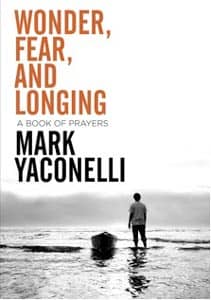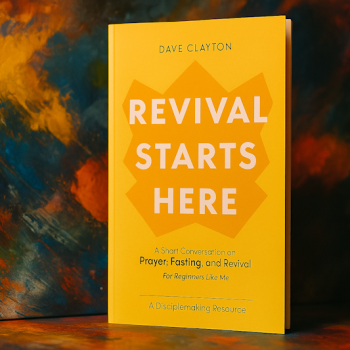An Interview with Mark Yaconelli
By Deborah Arca Mooney
 Popular youth ministry speaker and teacher Mark Yaconelli wrote his new book on prayer for teenagers, but it's being consumed by adults and youth alike. In this exclusive interview, Yaconelli reflects on an authentic life of prayer, why sometimes the simplest prayers are best and his deep desire to help people of all ages discover the prayer within each of them.
Popular youth ministry speaker and teacher Mark Yaconelli wrote his new book on prayer for teenagers, but it's being consumed by adults and youth alike. In this exclusive interview, Yaconelli reflects on an authentic life of prayer, why sometimes the simplest prayers are best and his deep desire to help people of all ages discover the prayer within each of them.
Mark Yaconelli has received national recognition for his exploration of the relationship between contemplation, spiritual direction, and youth ministry. His books Contemplative Youth Ministry, Growing Souls, and Downtime are read widely within youth ministry courses and have had a deep impact on the way in which youth ministry is practiced in North America and abroad. His most recent book, Wonder, Fear, and Longing: A Book of Prayer, was released this past fall and is written for a general audience.
Your latest book concerns the life of prayer. Tell me about your own experience of prayer -- how has it developed and what is your prayer life like today?
I wish I could tell you my prayer life has followed some beautiful evolution -- from simple biblical prayers, to beautiful contemplations on the mystery of love. As a child most of my prayers were basic bargaining -- sort of like the story in my book where my son Joseph, when he was four years old, prayed for healing for my wife when she was ill. Later, when I asked him to pray for me as I prepared to go on a trip, his prayer was, "Please God, let him bring me a toy."
I'm forty-three years old and my prayers are still basically like those of four-year-old Joseph; I'm drawn to prayer by my immediate fears and anxieties and desires. Even when I engage in contemplative forms of prayer, it's often because I'm aware of some background anxiety that needs God's silent love. I've read many books, written with great sophistication, about how prayer grows and evolves within us. Maybe that's true. I guess prayer has taught me to be more accepting of who I am, what I'm feeling, what's broken in me, what's beautiful in me. My prayer life goes through different seasons, and I try to be accepting of that. Sometimes I need words, sometimes I need silence, sometimes I just need to sit with others who are praying and pray the prayer that lives between us. To be truthful I still find great comfort in very simple prayers like, "Help!"
It seems as if the message of the book is, "There are prayers in you that seek to be expressed -- here are some ways that might help you express them." Would you agree with that?
Yes. This book isn't about teaching people to pray as much as helping them discover the prayer that already lives within them. There is a lot of spiritual teaching that tries to make people transcend who they are and become "spiritual" or "holy" -- something other than who they are. What I've discovered is that the spiritual life is really about trying to find what's real -- then accepting and responding to what is real. It's a tragedy that we spend most of our spiritual lives trying to escape from what is real -- hiding from our fears, repressing our anger or lust, ignoring our suffering, etc. The truth is that if we are to find the real God, that God is waiting with the real you, not the spiritual you, not the religious you, but the real, paradoxical, you.
So in the book I'm simply trying to help people find the prayer that lives in their anger, in their yearning, in experiences of wonder and gratitude. I do this by telling stories, by sharing quotes from other Christians about these human experiences, and then offering simple forms of prayers that help people release these prayers.
What makes this book different from other prayer books?
Well, first this book isn't about prayer practices. It starts with human experience and finds a variety of ways to help you find God within that experience. I wrote this book for my kids -- Noah, Joseph, and Grace. Noah is my oldest and he's just coming into his teen years. I thought to myself, what could I give my kids as they grow up that would help them stay close to God no matter what they're experiencing in their life?
So I thought of the major experiences we have as human beings -- moments of wonder, moments of fear, longing, times of passion, times of suffering, times when we feel tired and weary. I thought, "What could I give my children that would help them see God in these natural human experiences?" Then I tried to make it simple. I wrote a story, something I've seen or experienced. I went through my journals and wrote down all the words of wisdom I've collected from other Christians, scripture passages that I've found helpful, creative forms of prayer that might give them a new awareness of God, the world, their own fragile heart.





